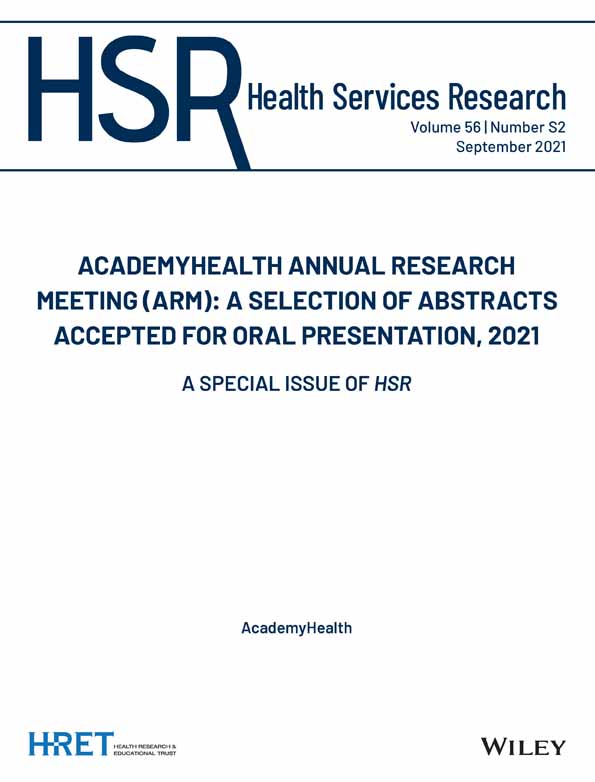Strategies for Sustaining High-Quality Pediatric Asthma Care in Community Hospitals
Abstract
Research Objective
Hospitals make significant investments in quality improvement (QI) initiatives to improve clinicians' guideline adherence and care quality. However, the majority of studies report adherence declines after such initiatives end. Our objective was to identify strategies associated with sustained guideline adherence and high-quality pediatric asthma care in community hospitals, which care for >70% of hospitalized children in the US.
Study Design
Pathways for Improving Pediatric Asthma Care (PIPA) was a national QI initiative. In a prior quantitative study, data from 34 community hospitals in PIPA were analyzed to identify sites with higher and lower performance in sustaining clinicians' guideline adherence over a 2-year period during and after the initiative. In this qualitative study, we conducted semi-structured interviews with clinicians from these higher- and lower-performing hospitals. We used constant comparative methods to identify strategies associated with sustained guideline adherence.
Population Studied
Multi-disciplinary clinicians (e.g., physicians, nurses, respiratory therapists).
Principal Findings
Clinicians (n = 19) from 5 higher- and 3 lower-performing hospitals participated. In higher-performing hospitals, dedicated local champions used several strategies to promote sustained high-quality care, including: (1) providing ongoing reminders of evidence-based practices; (2) delivering ongoing education on evidence-based practices; and (3) modifying the electronic health record (EHR) to provide decision support, often via order sets. Higher-performing sites also had access to resources for quality monitoring, as well as a culture of firm expectation that evidence-based practices would be adopted and followed without exception. In lower-performing hospitals, participants described unique barriers to sustaining high-quality care, including delays in modifying the EHR and lack of automation of EHR tools (requiring clinicians to remember and perform new EHR tasks without automated prompts to do so). Barriers to sustainability for all hospitals included: (1) challenges maintaining quality monitoring; (2) decreasing focus of local champions over time; and (3) ongoing difficulties developing consensus around evidence-based practices.
Conclusions
We outline several strategies associated with sustaining high-quality pediatric asthma care in community hospitals. Several of these rely on a dedicated, long-term local champion.
Implications for Policy or Practice
Supporting a dedicated local champion long-term may be critical to reap returns on QI investments.
| Strategy | Exemplary Quotes |
|---|---|
| Providing ongoing reminders of evidence-based practices | “And then for the residents, we have our guidelines where they can find them, and we have them just posted visibly in the call room as well as on a couple of different sites on our internal website.” |
| Delivering ongoing education/training on evidence-based practices | “When a new employee comes on during their orientation, they're educated on [the pediatric asthma] pathway… so that education piece is truly never gone away.” |
| Modifying the electronic health record (EHR) to provide decision support | “And then the other part of it is, it has to be easy to do. So, somebody shouldn't have to remember something on a regular basis because things are easy to forget and needs to be right there in their face. Every time they're ordering the asthma order set it's right there.” |
Primary Funding Source
Agency for Healthcare Research and Quality.




